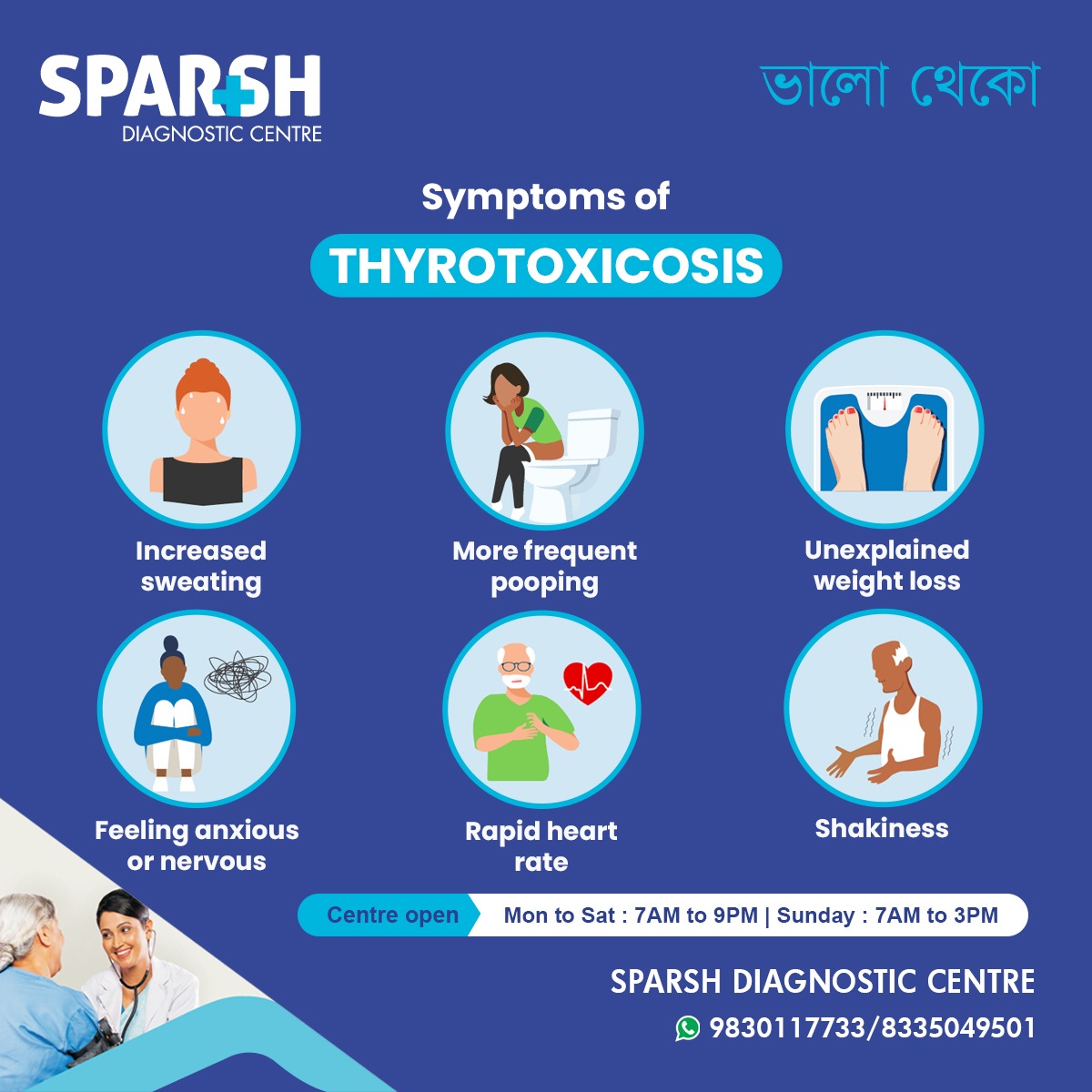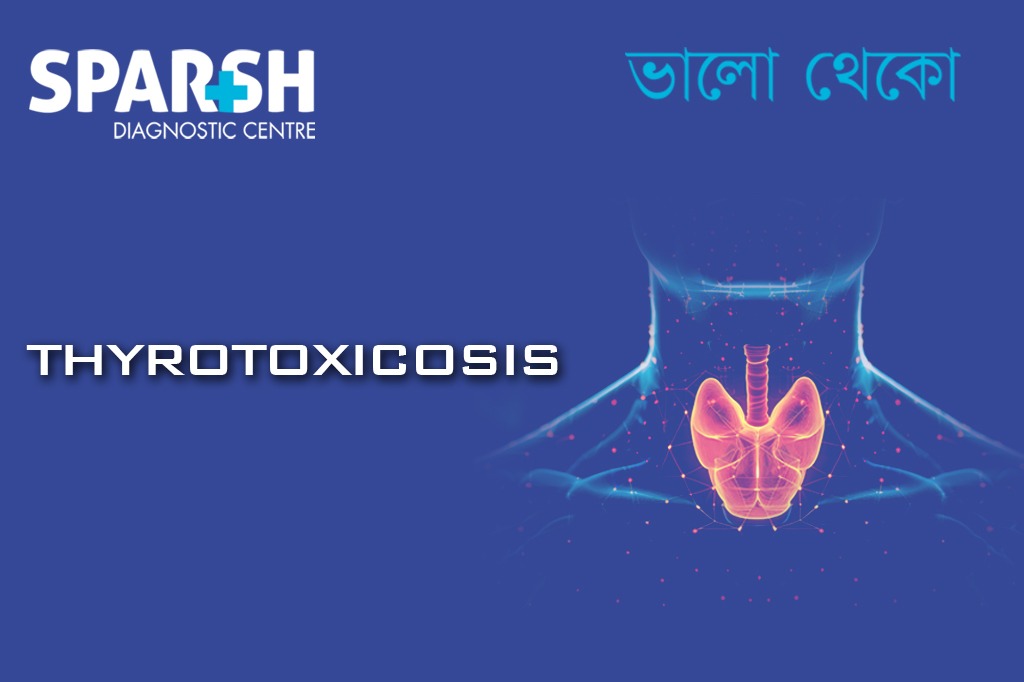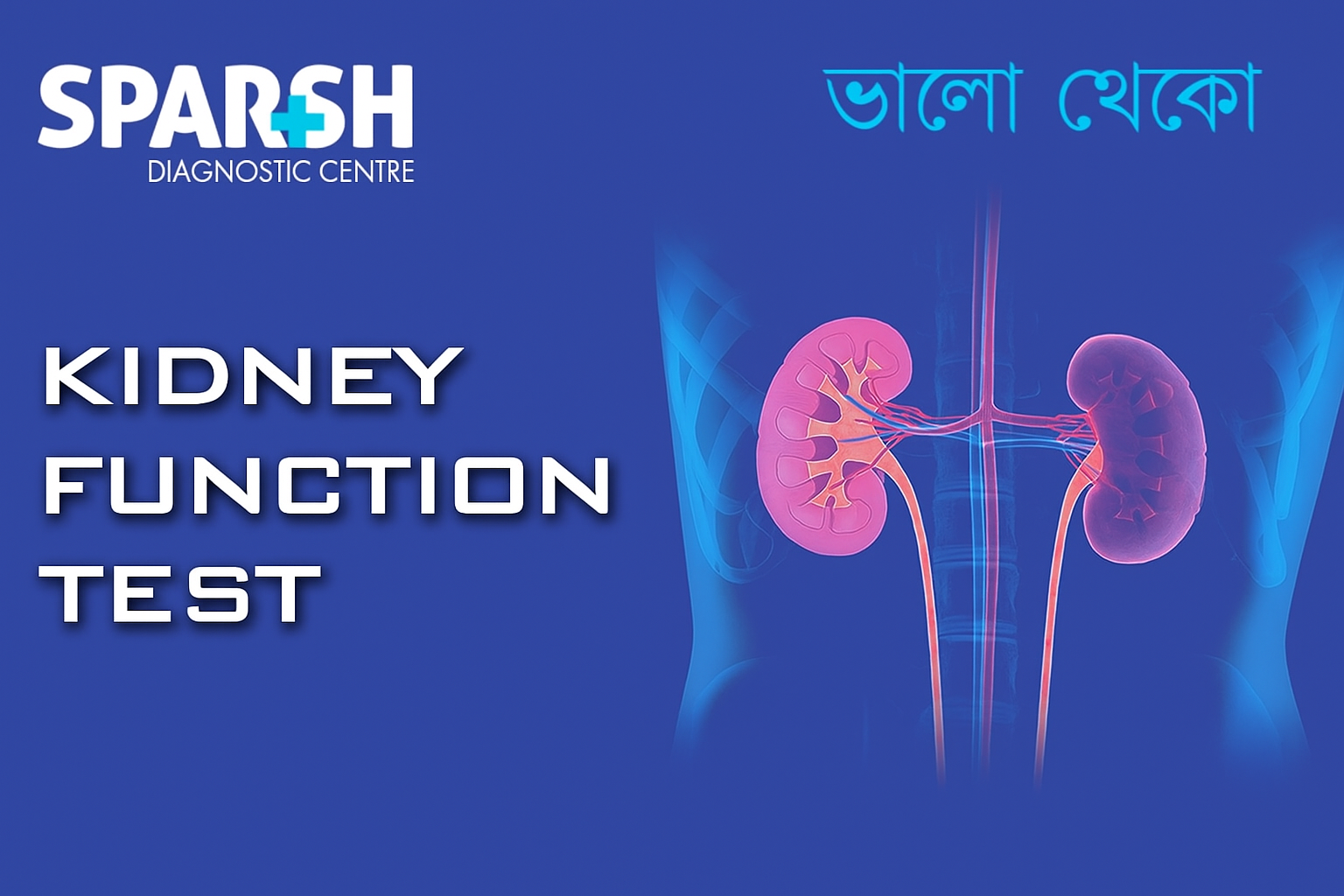The thyroid gland, a small butterfly-shaped organ located in your neck, plays a crucial role in regulating metabolism. When this gland produces too much thyroid hormone, the body’s metabolism speeds up abnormally, leading to a condition known as thyrotoxicosis. This hormonal imbalance can affect nearly every organ system, causing symptoms such as rapid heartbeat, unexplained weight loss, excessive sweating, anxiety, and tremors.
While hyperthyroidism and thyrotoxicosis are often used interchangeably, they are not exactly the same. Hyperthyroidism refers specifically to overactivity of the thyroid gland, whereas thyrotoxicosis refers to the clinical state caused by excessive thyroid hormones, regardless of the source.
Let’s explore what causes thyrotoxicosis, its symptoms, diagnostic methods, and available treatment options.
What is Thyrotoxicosis?
Thyrotoxicosis occurs when the body is exposed to excessive amounts of thyroid hormones — triiodothyronine (T3) and thyroxine (T4). These hormones are responsible for controlling the body’s energy usage, temperature regulation, and metabolic rate. When their levels become too high, the body’s metabolism accelerates, resulting in multiple systemic effects.
In simple terms, thyrotoxicosis is like your body’s engine running in overdrive.
Causes of Thyrotoxicosis
Several conditions can lead to excessive thyroid hormone levels. The most common causes include:
1. Graves’ Disease
An autoimmune disorder where the immune system attacks the thyroid gland, stimulating it to produce too much hormone. It is the leading cause of thyrotoxicosis.
2. Toxic Multinodular Goitre
This condition occurs when multiple nodules within the thyroid become overactive, secreting excess thyroid hormone independently.
3. Thyroid Adenoma (Toxic Adenoma)
A single overactive nodule in the thyroid can cause excessive hormone production.
4. Thyroiditis
Inflammation of the thyroid gland can lead to the release of stored thyroid hormones into the bloodstream, temporarily causing thyrotoxicosis.
5. Excessive Iodine Intake
Some medications or supplements (e.g., amiodarone or contrast dyes) contain high levels of iodine, which can overstimulate the thyroid gland.
6. Overmedication with Thyroid Hormone
Individuals taking thyroid hormone replacement for hypothyroidism may experience thyrotoxicosis if their dosage is too high.
7. Metastatic Thyroid Cancer
Rarely, thyroid cancer that has spread to other organs may produce thyroid hormones, leading to thyrotoxicosis.
Symptoms of Thyrotoxicosis
Thyrotoxicosis can manifest differently from person to person, depending on the severity and underlying cause. However, common symptoms include:
Increased Sweating – The body’s metabolic overdrive raises temperature, causing excessive perspiration.
More Frequent Bowel Movements – Increased metabolism speeds up digestion, leading to frequent pooping.
Unexplained Weight Loss – Despite normal or increased appetite, weight loss occurs due to elevated energy expenditure.
Feeling Anxious or Nervous – Excess thyroid hormones overstimulate the nervous system, causing irritability and anxiety.
Rapid Heart Rate (Tachycardia) – The heart pumps faster, and palpitations may occur even at rest.
Shakiness or Tremors – Fine tremors, particularly in the hands and fingers, are common.
Heat Intolerance – Individuals with thyrotoxicosis often feel hot even in cool environments.
Fatigue and Muscle Weakness – Despite increased energy output, the body’s muscles can weaken.
Menstrual Irregularities – Women may experience lighter, less frequent periods or even amenorrhea.
Sleep Disturbances – Insomnia or restlessness is common due to heightened metabolism and anxiety.
Bulging Eyes (Exophthalmos) – In Graves’ disease, eye bulging occurs due to immune-mediated inflammation behind the eyes.

If left untreated, thyrotoxicosis can lead to severe complications such as thyroid storm, a life-threatening condition marked by extremely high fever, confusion, and rapid heartbeat.
Complications of Thyrotoxicosis
Prolonged untreated thyrotoxicosis can lead to:
Atrial fibrillation (irregular heartbeat)
Thyroid storm (medical emergency)
Early diagnosis and treatment are essential to prevent these risks.
Diagnosis of Thyrotoxicosis
If you suspect thyrotoxicosis, your doctor will perform a detailed physical examination and order specific diagnostic tests. At Sparsh Diagnostic Centre, advanced thyroid testing and imaging services are available for accurate diagnosis.
1. Blood Tests
Thyroid Function Tests (TFTs):
Elevated Free T4 and/or Free T3
Thyroid Antibody Tests:
Detect autoimmune causes like Graves’ disease (TSI or TRAb antibodies).
2. Radioactive Iodine Uptake (RAIU) Scan
This scan determines how much iodine your thyroid absorbs. High uptake suggests hyperactive thyroid tissue (like in Graves’ disease), while low uptake indicates thyroiditis or excessive hormone intake.
3. Ultrasound of the Thyroid
Ultrasound helps identify thyroid nodules, cysts, or inflammation.
4. ECG (Electrocardiogram)
Used to detect cardiac effects such as arrhythmias or tachycardia.
5. CT or MRI (in rare cases)
If eye symptoms or goitre complications are suspected.
Treatment of Thyrotoxicosis
Treatment depends on the cause, severity, age, and general health of the patient. The goal is to normalize thyroid hormone levels and relieve symptoms.
1. Antithyroid Medications
Drugs such as Methimazole or Propylthiouracil (PTU) inhibit thyroid hormone synthesis. They are often the first line of treatment, especially for Graves’ disease.
2. Beta-Blockers
Medications like Propranolol or Atenolol help control symptoms like rapid heart rate, anxiety, and tremors but don’t reduce hormone levels.
3. Radioactive Iodine Therapy (RAI)
A small oral dose of radioactive iodine destroys overactive thyroid cells. It is a common long-term treatment, especially for Graves’ disease or toxic nodules.
4. Surgery (Thyroidectomy)
In cases of large goitre, nodules, or intolerance to medications, partial or total thyroid removal may be recommended. Post-surgery, patients may require lifelong thyroid hormone replacement.
5. Corticosteroids
Used to reduce inflammation in thyroiditis or eye involvement in Graves’ disease.
6. Lifestyle and Dietary Modifications
Avoid excessive caffeine and stress.
Ensure adequate sleep and hydration.
Engage in moderate exercise to improve metabolism balance.
Thyroid Storm: A Medical Emergency
Thyroid storm is a rare but life-threatening complication of thyrotoxicosis. It is characterized by:
High fever (over 40°C)
Rapid or irregular heartbeat
Severe agitation or confusion
Possible loss of consciousness
If any of these symptoms occur, immediate hospitalization is essential. Prompt treatment can be life-saving.
Prognosis
With early diagnosis and appropriate treatment, most people with thyrotoxicosis recover completely. However, lifelong monitoring is necessary, especially for autoimmune causes like Graves’ disease. Some patients may eventually develop hypothyroidism after treatment, requiring thyroid hormone replacement.
Prevention
While not all cases can be prevented, certain measures help reduce risk:
Avoid unnecessary iodine supplements unless prescribed.
Get regular thyroid check-ups if there’s a family history.
Manage stress effectively through yoga, meditation, or counseling.
Take thyroid medication exactly as prescribed.
Avoid self-medicating with thyroid-related drugs.
When to Visit a Diagnostic Centre
If you notice symptoms such as unexplained weight loss, frequent bowel movements, anxiety, or increased sweating, it’s time to get your thyroid checked.
At Sparsh Diagnostic Centre, you can undergo:
Thyroid Antibody Tests
ECG and other supportive tests
Our experienced medical team ensures early detection and coordinated care for thyroid disorders.
Living with Thyrotoxicosis
Managing thyrotoxicosis involves more than just medical treatment—it requires consistent follow-up, lifestyle balance, and self-awareness.
Tips for long-term management:
Take prescribed medications regularly.
Monitor your pulse and report irregularities.
Follow a nutritious, moderate-iodine diet.
Keep all follow-up appointments for thyroid testing.
Seek emotional support if you experience anxiety or mood changes.
FAQ Section
1. What is the difference between hyperthyroidism and thyrotoxicosis?
Hyperthyroidism refers to the overproduction of thyroid hormones by the thyroid gland, while thyrotoxicosis refers to the clinical effects of having too much thyroid hormone in the body—no matter the source.
2. Can thyrotoxicosis be cured?
Yes. Depending on the cause, treatments such as antithyroid drugs, radioactive iodine, or surgery can cure or permanently control thyrotoxicosis.
3. Is thyrotoxicosis life-threatening?
If untreated, it can cause serious heart problems or thyroid storm, which can be fatal. Early diagnosis and proper treatment make the condition manageable.
4. How long does treatment take?
Treatment duration varies. Antithyroid medications are typically taken for 12–18 months, while other therapies like radioactive iodine or surgery provide more permanent results.
5. Does diet affect thyrotoxicosis?
Yes. Limiting iodine-rich foods like seaweed, shellfish, and iodized salt can help manage symptoms. A balanced diet supports overall recovery.
6. Can stress trigger thyrotoxicosis?
Stress does not directly cause thyrotoxicosis but can worsen symptoms by affecting immune and hormonal balance, especially in autoimmune thyroid disease.
7. How often should I get my thyroid checked?
If diagnosed, thyroid function should be tested every 3–6 months or as advised by your doctor.
Thyrotoxicosis is a serious but treatable thyroid condition that affects metabolism and overall well-being. Recognizing the early warning signs—such as increased sweating, rapid heartbeat, shakiness, and unexplained weight loss—can lead to timely diagnosis and effective management.
At Sparsh Diagnostic Centre, we offer comprehensive thyroid testing, expert consultations, and advanced imaging services to ensure accurate diagnosis and optimal care.
If you experience any symptoms of thyrotoxicosis, don’t delay—book your thyroid evaluation today.
#BhaloTheko
Disclaimer:
No content on this site, regardless of date, should ever be used as a substitute for direct medical advice from your doctor or other qualified clinician.

![]()






[…] Thyrotoxicosis, rheumatoid arthritis, or autoimmune diseases can sometimes present with vascular asterisks. […]